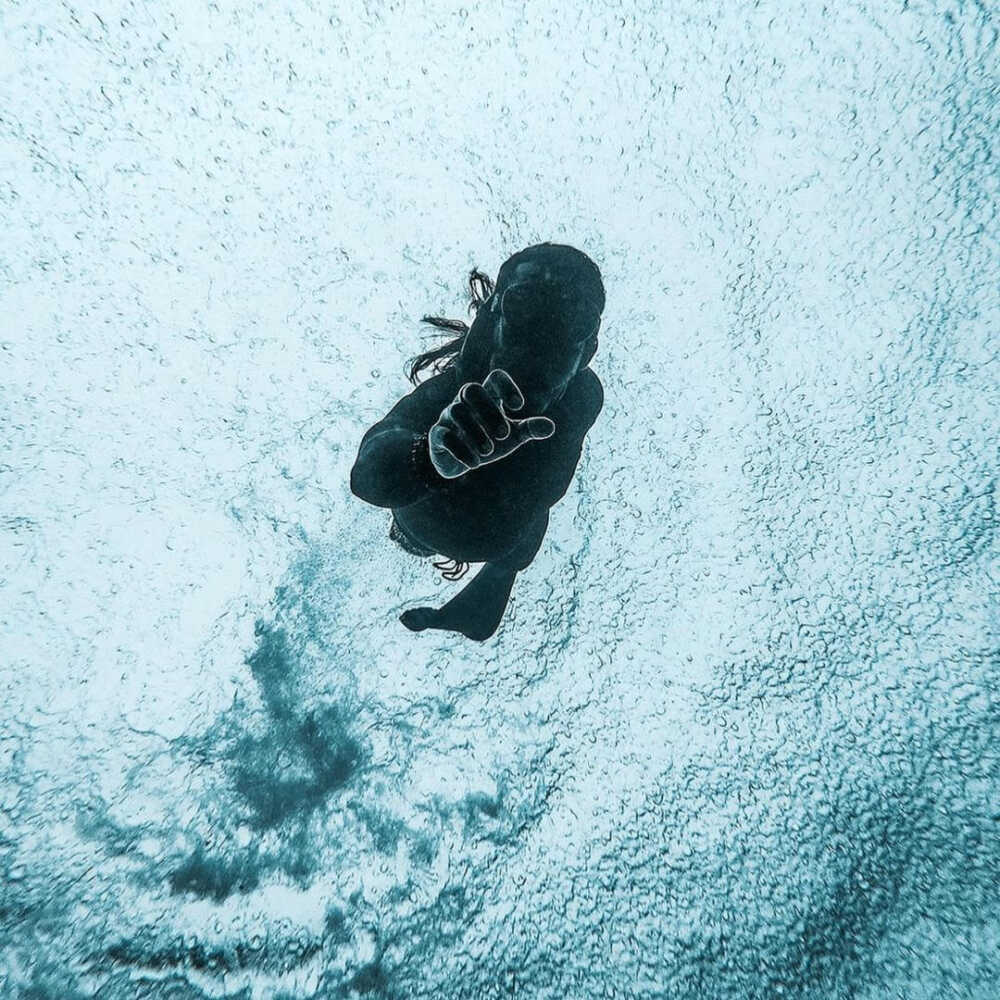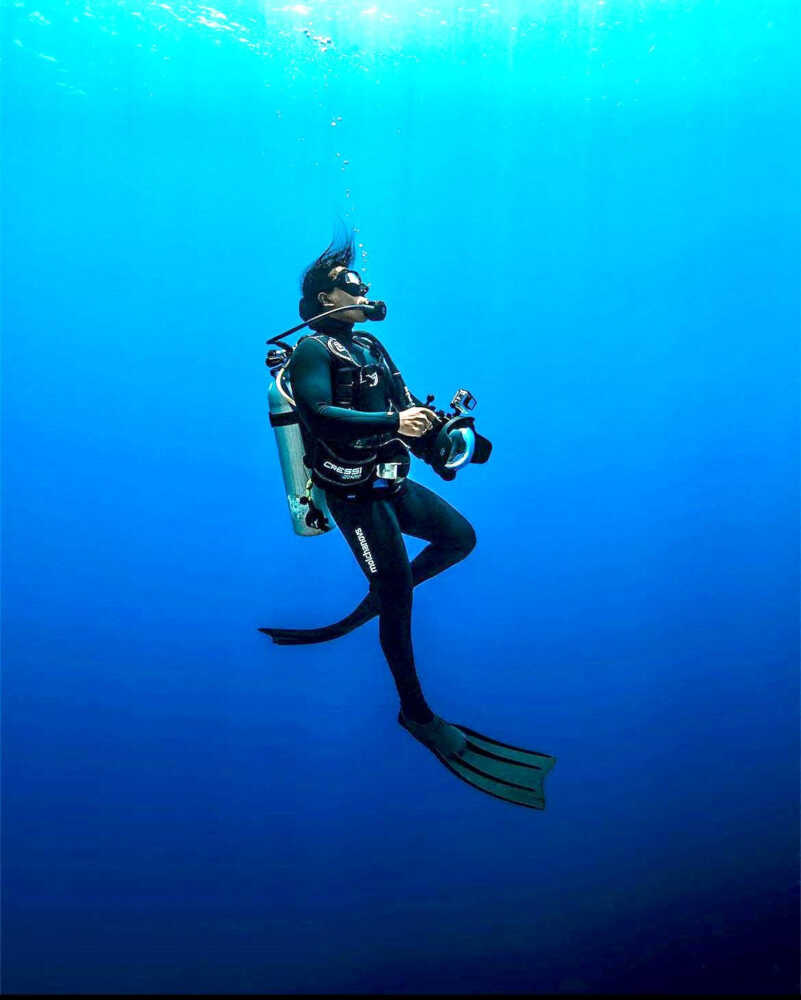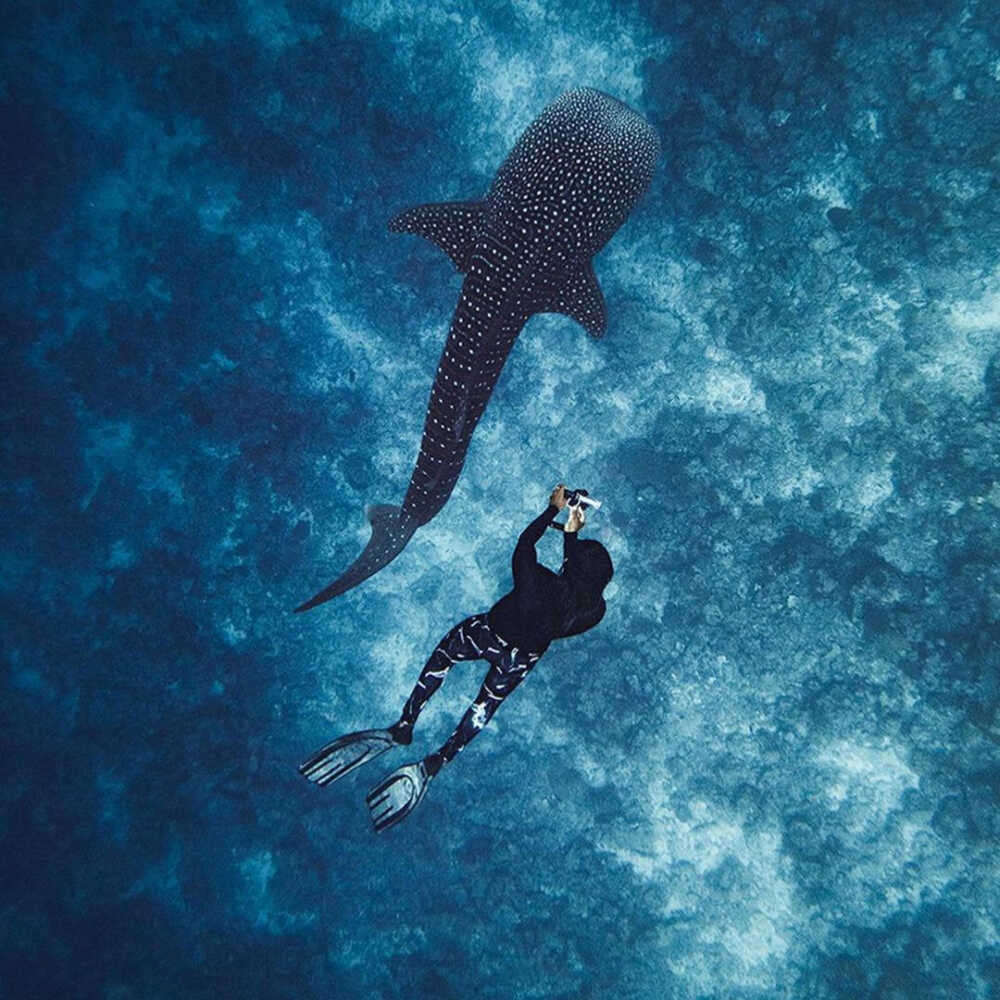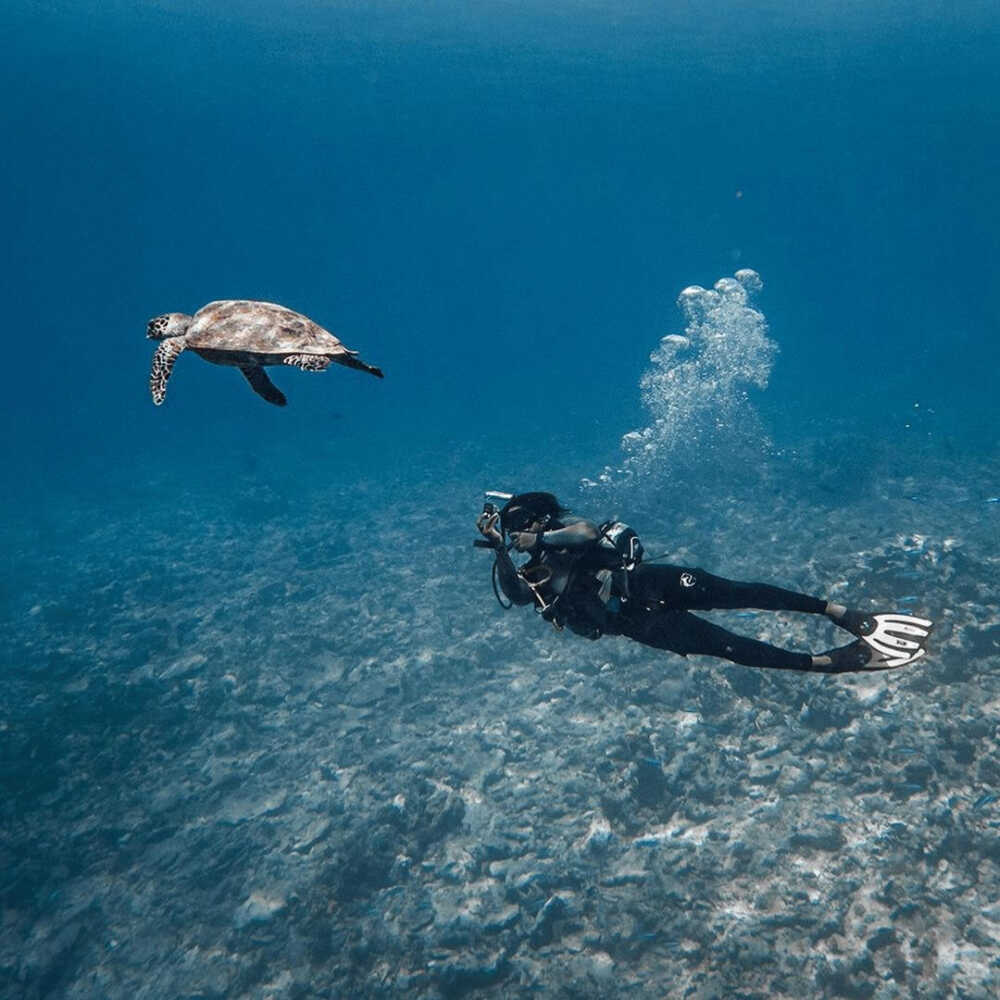Interview with Kaushman: Careers in conservation
Written by: Bennath Chillingworth
From July-September 2022, I spent 6 weeks living in Mozambique while volunteering as a field assistant with Love the Oceans (LTO). LTO is a non-profit organisation that works tirelessly to support the community in Jangamo Bay in establishing a Marine Protected Area for the Inhamabane province in Mozambique. While I was there, I was lucky to have met some incredibly interesting, and boundlessly inspiring people who are exceptionally good at what they do, having made huge contributions to the industry. One of these people is @Kausman, who I was fortunate enough to cross paths with during my time in Mozambique.

Instagram: @kaushman
Kaush is a wildlife conservation biologist (MSc), having conducted fieldwork projects in several diverse environments ranging from South African scrubland to Maldivian coral reefs. Additionally, as a camera operator and award-nominated photographer, Kaush has worked with conservation organisation outlets such as the BBC to shed light on conservation efforts worldwide. You can find out more about Kaush on his website at https://kaush.net/. Read my interview with Kaush below where we talk about his career and achievements to give a flavour of, and insight into the world of marine conservation, and hopefully provide advice to aspiring marine biologists and conservationists of any age! And stay tuned for the sequel blog where Kaush talks about his new film ‘Peixinho’ which
was filmed while I was also out in Mozambique!
How did you get to where you are now?
“I’ve always known that I’ve wanted to work with wildlife since I was a child, I just didn’t always know in what capacity. After I finished my BSc, I went straight into doing a master’s degree in wildlife conservation. It made sense to do that in order to learn more about the techniques and practices used in the field to carry out conservation in different scenarios around the world. For my thesis, I arranged to go and research whale shark eco-tourism in the Maldives with a charity that was carrying out some amazing work. After I came back from that experience, I finished my MSc and the charity asked me back the following year to be their research assistant in the field. I spent three months studying whale sharks that year and adding to my data set from the previous year, as well as getting more into underwater photography and videography. Shortly after I returned home from that stint, the world was thrown into a pandemic, and I had a lot of time to work on my photo and video editing skills as well as to write up the data that I had collected. My initial BBC job came after applying for a few jobs and one BBC producer looked at my research background and recommended me to another producer for an upcoming documentary series that was in the works. I started as a researcher, using my science background and research skills to contact scientists and find potential stories to film.”

Instagram: @kaushman
What interested you most/ what did you most enjoy about your master’s course?
“The thing that interested me most was the module that we had on “Conservation Communication”.
It taught us a lot about how amazing conservation efforts in the past had gone unheard of by the masses and how important consideration messages had been missed due to them being poorly communicated and broadcast to the vast majority of people. It also underlined the importance of social media and photos/images in the present day, as tools for communicating conservation efforts and this really resonated with me as someone who already had a passion for this kind of media.”
What was your master’s thesis on?
“My thesis research focused on whale shark eco-tourism in the Maldives and the impact that it has on whale shark health. The area of the Maldives that I did my research in is one of the only places in the world where there is a year-round population of whale sharks, and this drives a huge demand for tourist excursions to swim with them. My research focused on the impacts of breaking the code of conduct rules for whale shark encounters on the sharks.
What was it like working for the BBC?
“Working for the BBC was amazing and in many ways, a dream come true. I worked as a researcher on a documentary series that is in the works at the moment. Using my science background to read papers, search for interesting animal behaviours and to talk to scientists about potentially interesting stories that we could go out and film. After a potential story was found and talked through with the team, I’d then lease with my producer and start the process of organising the shoot and the logistics of it all. It was an incredible experience and a huge learning curve about the industry. I was really lucky to have an amazingly supportive team who helped me every step of the way as I was thrown into the deep end a bit with it being my first job in the industry, but the team was just amazing.”
What are some of the proudest moments from your career so far/ moments that remind you how
much you have achieved?
“Landing a job at the BBC is definitely up there as that is something that I had been working at for so long. Having two of my images shortlisted in the upcoming Wildlife Photographer Of The Year was a special moment for me as well. Being an amateur photographer when I took the selected images, and it being the most prestigious wildlife photography competition in the world, I really hope that my nominations for the award can inspire others to go out and pursue their passion for photography. The other stand-out moment of the last year has to be screening of my short film about coral reefs in the cinema room of the BBC for my friends and colleagues. It was amazing to showcase my work to people who are at the top of the natural history filming industry and to get such great feedback from
them, and it really served to highlight how much progress I’d made in terms of my editing during the months and months of pandemic lockdowns.”

Instagram: @kaushman
I felt very inspired by the people I met in Mozambique, including Madeline StClair, Francesca Trotman, and Ines Costa, my program leader. What is it like being in such a close group of friends that are all such amazing, high-achieving marine biologists?
“It really is amazing having such talented friends like Chess and Mads, who are also incredibly supportive. Being able to collaborate so seamlessly and then also be a part of each other’s personal lives after long days at work is such a help in a field that can be extremely stressful at times. Meeting someone as passionate about the field and so accomplished at such a young age as Ines was incredible and great to meet such a nice person. The marine sector is so small, and we are all trying to achieve the same goal in conserving the oceans, it is amazing when we can work together and support each other’s projects.”
What advice do you have for young aspiring marine biologists/ conservationists such as myself wanting to get into the field when there is so much competition?
“It is a very hard industry to break into, especially at the new grad/early careers stage so you’re going to get a lot of rejections for jobs but that is just part of the process, and you can’t take it to heart. Keep applying for jobs/internships etc and try to gain as much valuable experience as you can until someone takes a chance on you. In the meantime, work on your current skillset so that you’re sharp and work on learning new skills that will make you stand out above the rest. We live in the age of the internet, where learning a new skill is just a few clicks away.”
Visit https://kaush.net/ for more information, and make sure you give @kaushman a follow on socials.


